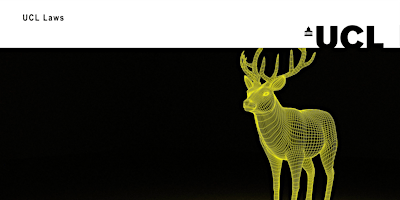You must login before you can post a comment.
Thursday 23 March 18:00 - 19:00
UCL Faculty of Laws
Bentham House, Endsleigh Gardens
London
WC1H 0EG
Registration
Inaugural Lecture: 3D Shape Marks – a 360 Degree Analysis
Business & Professional
3D Shape Marks – a 360 Degree Analysis’ by Professor Ilanah Fhima (Faculty of Laws, UCL)
Chair: TBC
About this Inaugural Lecture
The general consensus is that it is almost impossible to register a shape mark as an EU trade mark (EUTM), and if they are to be registered, proof of existing consumer recognition (acquired distinctiveness) is required. In this empirical study of all 3D shape marks filed at the EUIPO in the five-year period between 2017 and 2021 – just over 2000 marks in total – this study demonstrates that the prevailing view is wrong. While shape marks may well be more difficult to register than other forms of mark, this research demonstrates that there are a substantial number of shape marks on the EU Register which have been accepted as being inherently distinctive. These findings extend even to mark which are ‘pure’ product shapes (no claim to colour or addition of other distinguishing indicia). Moreover, acquired distinctiveness plays virtually no role in the registration of shape marks at the EUIPO.
This research further examines which types of shape marks are being applied for and registered, and for which classes of goods and services. It interrogates the role that the addition of distinctive matter, such as colour, wording, figurative elements and getup more generally, has to play in the grounds of objections raised and ultimate acceptance or refusal. In particular, this research highlights the fact that it is inherent distinctiveness, rather than functionality, that lies behind the vast majority of objections to shape marks, despite the fact that the jurisprudence recognises functionality, not distinctiveness, as the key safeguard against registration of features of shape that have the potential to hinder fair competition. Indeed, in the vast majority of cases, functionality is not even considered. Finally, this research identifies common registration strategies which applicants for EUTMs adopt and the likely impact these practices have on validity and the scope of protection of shape mark registrations.
About the Speaker
Ilanah Fhima is Professor of Intellectual Property, Deputy Director of Research Studies and co-director of the Institute of Brand and Innovation Law at University College London’s Faculty of Laws, UK. She has published widely on all aspects of trade mark law in the UK, the US and Europe. Her current research uses a range of doctrinal and interdisciplinary methodology to analyse and critique all aspects of the protection of three dimensional marks, and the impact that their registration has on competition. Ilanah is also particularly interested in the extent to which the needs of proprietors, competitors and users are balanced in calibrating the scope of trade mark protection. Her most recent book The Confusion Test in European Trade Mark Law (with Dev Gangjee), described as ‘essential reading for all those who work in this field’ was published by Oxford University Press in November 2019. Her first monograph, Trade Mark Dilution in Europe and the United States (OUP, 2011) remains the only comprehensive comparison of the controversial dilution action in the two jurisdictions.
About Current Legal Problems
The Current Legal Problems (CLP) lecture series and annual volume was established over fifty five years ago at the Faculty of Laws, University College London and is recognised as a major reference point for legal scholarship.








